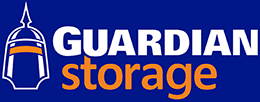Financial Tips for Buying Your First Home
Buying your first home is a monumental milestone in life, often marking a significant financial investment. As you embark on this journey, it’s crucial to equip yourself with the right knowledge and strategies to ensure a smooth and successful transition into homeownership. Here, we’ll explore a comprehensive guide to financial tips for first-time homebuyers, covering everything from timing considerations to budgeting strategies and risk management techniques.
Timing Considerations
Before delving into the home-buying process, it’s essential to assess the timing from two perspectives: your personal finances and the state of the housing market.
- Personal Finances:
- Before contemplating homeownership, prioritize optimizing your financial health. Start by clearing any outstanding debts, especially high-interest debts like credit card balances. Not only does this improve your credit score, but it also enhances your borrowing capacity and eligibility for favorable mortgage rates. Devise a structured repayment plan, focusing on eliminating smaller debts first and gradually tackling larger ones. Avoid making significant purchases, such as a new car, in the months leading up to your home purchase, as this could impact your debt-to-income ratio and mortgage approval.
- Buyers’ vs. Sellers’ Market:
- Keep a close eye on the housing market dynamics to identify favorable buying conditions. Ideally, aim to purchase your first home during a buyers’ market, characterized by an abundance of housing inventory and subdued competition among buyers. In such market conditions, you’re more likely to encounter attractive pricing and negotiation leverage.
- Browsing:
- Even if you’re not yet ready to make a purchase, familiarize yourself with the local housing market by actively browsing listings in your desired area. This proactive approach provides valuable insights into prevailing property prices, market trends, and inventory availability. By staying informed, you’ll be better positioned to make informed decisions when the time comes to buy.
Financial Preparedness
Understanding the financial implications of homeownership is vital for sound decision-making and effective budgeting. Consider the following factors:
- Monthly Expenses:
- Calculate your anticipated monthly housing expenses, encompassing mortgage payments, utilities, insurance, homeowner association (HOA) fees, and property taxes. Aim to allocate no more than 30% of your monthly income towards housing expenses, although this figure may vary based on location and income level. Conduct thorough research to ascertain the average costs associated with homeownership in your target area.
- Mortgage Payments:
- While you may qualify for a certain mortgage amount, exercise prudence in selecting a mortgage that aligns with your financial goals and lifestyle. Opting for a smaller mortgage allows for greater flexibility and financial security, enabling you to allocate funds towards savings, investments, or home improvements.
- Additional Fees:
- Prepare for ancillary expenses associated with the home-buying process, including appraisal and inspection fees, closing costs, and potential renovation expenses. Factor in miscellaneous costs such as HOA fees, property taxes, utility hook-up fees, and moving expenses to ensure comprehensive financial planning. Building a contingency fund to cover unforeseen expenses provides a safety net during the transition to homeownership.
- Down Payment Options:
- Research various down payment options available to first-time homebuyers, including conventional loans, FHA loans, and down payment assistance programs. While a higher down payment often translates to lower monthly mortgage payments and reduced interest costs, explore options that align with your financial circumstances and long-term goals. Some programs offer down payment assistance or favorable terms for qualified buyers, providing additional support in securing your dream home.
- Credit Score Management:
- Monitor and maintain a healthy credit score throughout the home buying process to secure favorable mortgage rates and terms. Review your credit report regularly for inaccuracies or discrepancies, and take steps to address any issues promptly. Pay bills on time, keep credit card balances low, and avoid opening new lines of credit before applying for a mortgage to preserve your creditworthiness.
- Pre-Approval vs. Pre-Qualification:
- Understand the distinction between mortgage pre-approval and pre-qualification, as they serve different purposes in the home buying process. Pre-qualification provides an estimate of how much you may be able to borrow based on basic financial information, while pre-approval involves a comprehensive credit check and documentation review by a lender. Obtaining pre-approval demonstrates your seriousness as a buyer and strengthens your bargaining position when making an offer to buy your first home.
Budgeting Tips for Homeownership
Homeownership Readiness Checklist
- Evaluate your long-term goals and lifestyle preferences to determine if homeownership aligns with your aspirations.
- Assess your financial situation, including income, savings, and debt obligations, to gauge your readiness for homeownership.
- Research neighborhoods and housing options to identify areas that meet your criteria for location, amenities, and affordability.
- Consult with a financial advisor or mortgage lender to explore financing options and determine a budget for your home purchase.
- Create a timeline for the home-buying process, including milestones such as saving for a down payment, obtaining pre-approval, and conducting home inspections.
- Develop a contingency plan to address unexpected expenses or changes in your financial situation during the home-buying process.
Budgeting Tips for Homeownership
- Establish a comprehensive household budget that accounts for all income sources and expenses, including housing costs, utilities, groceries, transportation, and discretionary spending.
- Prioritize saving for a down payment and closing costs by setting aside a portion of your income each month in a dedicated savings account.
- Explore ways to reduce discretionary spending and increase savings, such as cutting unnecessary expenses, negotiating lower bills, and maximizing income through side hustles or investments.
- Consider alternative housing options, such as starter homes or fixer-uppers, that may offer lower purchase prices and renovation opportunities.
- Factor in ongoing maintenance and repair costs when budgeting for homeownership, including routine upkeep, repairs, and emergency expenses.
- Review your budget regularly to track progress towards your savings goals and make adjustments as needed to stay on track.
Risk Management Strategies
Risk Management Strategies
- Obtain homeowners insurance to protect your investment against unforeseen events such as fire, theft, or natural disasters.
- Consider purchasing additional coverage, such as flood insurance or earthquake insurance, if you live in an area prone to specific risks.
- Create an emergency fund to cover unexpected expenses or financial setbacks, such as job loss or medical emergencies, that may impact your ability to meet mortgage payments.
- Explore mortgage protection insurance or life insurance options to provide financial security for your family in the event of your death or disability.
- Implement home security measures, such as alarm systems, deadbolts, and security cameras, to deter burglaries and safeguard your property.
- Stay informed about local zoning regulations, building codes, and environmental hazards that may affect your property value or homeownership experience.
Post-Purchase Planning
Post-Purchase Planning
- Develop a plan for furnishing and decorating your new home, prioritizing essential items and budget-friendly decor options.
- Schedule routine maintenance tasks, such as HVAC inspections, gutter cleaning, and lawn care, to keep your home in optimal condition.
- Establish relationships with local service providers, such as plumbers, electricians, and contractors, for future maintenance and repair needs.
- Get involved in your community by attending neighborhood events, joining homeowner associations, and participating in local initiatives.
- Continue to monitor your financial health and adjust your budget as needed to accommodate changes in expenses or income.
- Plan for future home upgrades or renovations by setting aside savings and researching design ideas and contractors.
By incorporating these comprehensive financial tips and strategies, first-time homebuyers can navigate the complexities of the home-buying process with confidence and set the foundation for a successful homeownership journey. Remember, proactive research and strategic decision-making are key to achieving your homeownership goals.
Are you excited to make your first home your own?
Remember, Guardian Storage is here to help you every step of the way. As you plan your move, explore our range of storage solutions to streamline your transition and keep your belongings safe. Get in touch with us today to learn more about our storage options and make your move hassle-free!





